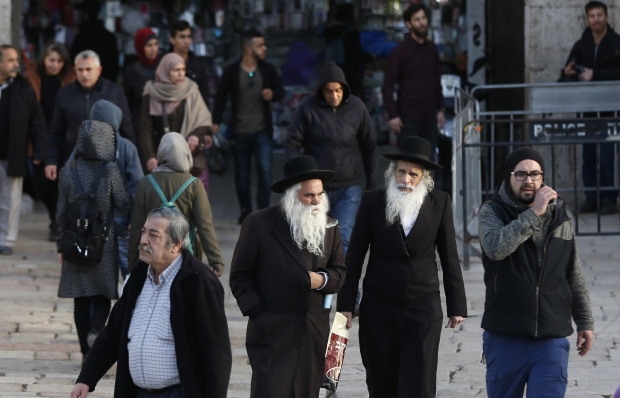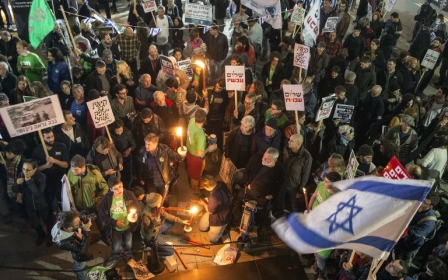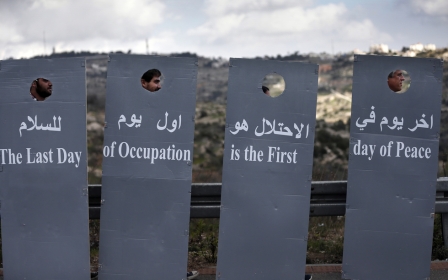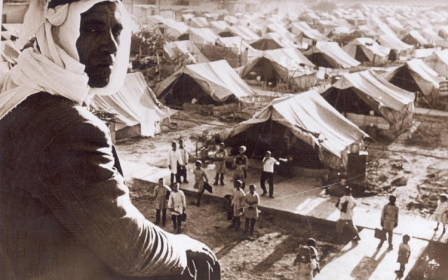A blessing or colossal curse? What it means to be an Israeli today
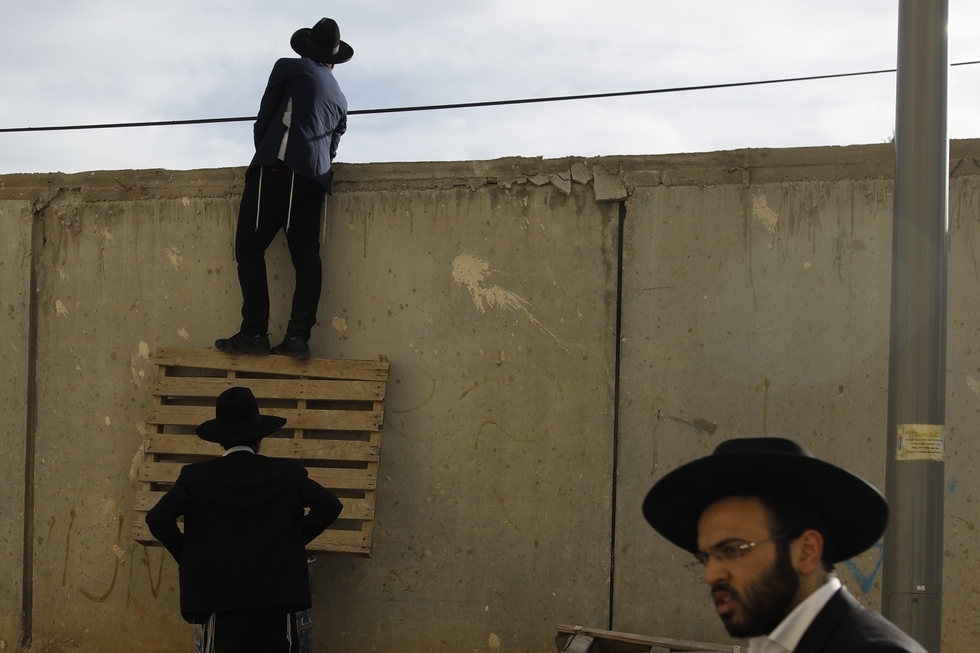
When I left Israel, 10 years ago, the media was not yet saturated with unapologetic aggression towards everything Palestinian. One could still hear, here and there, some voices of dissent.
What sort of human being could possibly be formed during the course of a life replete with acts of organised theft and oppression?
Today, the task of watching or listening to a news programme has become excruciating. Israeli journalists, almost without exception, have all taken on the role of defending the homeland, with passion and fury.
Proper journalism has almost disappeared. Some explicitly call for indiscriminate killing of Palestin
Zionism and the Holocaust
Needless to say, no Israeli journalist is ever prosecuted nor interrogated for incitement to violence. Israeli media, surely, is not a bubble of anger in the midst of a loving society. It echoes all other social spheres.
I have come to wonder about the extent to which Zionism is comparable, in terms of its catastrophic impact on the Jewish people, to the Holocaust. In modern times, nothing has swayed Jewish life more than these two phenomena.
Here I'm reflecting not upon the dreadful existential situation that Zionism has created for Palestinians, but about how, in the process of the creation and maintenance of such a state of affairs, the lives of Israelis have been shaped, and more generally how Jewishness has been affected.
Commencing with the moment of their birth, Israelis are trained to become active oppressors
We should not assume that everything the Israelis earn from their acts of colonisation of Palestinians is profit and privilege. The question I'm pointing to is: what sort of human being could possibly be formed during the course of a life replete with acts of organised theft and oppression?
The "Jewish answer" that Zionism has been laboriously producing
Worldwide, Zionism's fist has come to haunt Jews in new forms. From the Jewish communities in the diaspora who face a sort of anti-Semitism that is a confused mixture of old racial and religious impetuses, spiced with a reproach of Israel gone wild, to another form of Jewishness that is extremely discomfited by the distressing admiration of Israel by the far right.
Yet, to remove any doubt, my thoughts here do not derive from, neither do they claim, any sort of equivalence of suffering and victimhood between colonisers and colonised, between settlers and natives. It is rather the pathology of the oppressor that I'm looking at.
Active oppressors
From the moment of their birth, Israelis are trained to become active oppressors. Soldiership is a pivotal moment in this training, but not the only one. In Israeli society, the definition of good parents means those who sacrifice, in soul and body, their offspring, while teachers assist with day-to-day formal indoctrination.
In a system that equips you with the arts of physical and political violence as the counterpoint of privilege and pleasure, one is destined to become a willing oppressor.
From the viewpoint of the oppressed, the oppressor's racial, ethnic, religious and gender diversity has no significance so long as it serves a common cause. It does not matter why Israeli Jews of different colours and shapes have adopted that common cause, or how much they feel gratified with their share of the bounty.
Ideology, pragmatism, or just inertia – the result is the same: Israeli Jews share a tragedy, and they have infected their brethren in the diaspora with it. That is the tragedy of a people who have embodied hate as a condition of life, in flesh and bone, in practice, sentiment and thought.
And like a colossal curse of God, that tragedy is not fought but celebrated.
How does a people liberate themselves fro
m the pleasures of oppression? Step by step, by abandoning the roles, functions, and benefits one is provided with in the process of becoming Israeli
During catastrophic times, the first significant question is; how to heal. The monstrosity of the Jewish Holocaust did not decimate all emotional resources. Some amongst the world's Jewry have - out of their dreadful experiences in Europe - made a place of universal love.
In so doing, they have given the world a legacy: we have survived the Holocaust and overcome the hatred that imbued it. But Israel did not.
A curse or a blessing?
Zionism has appropriated the Jewish Holocaust to make it an excuse for Jewish violence, and the Israelis, in embracing their own cat
In other words, the curse has been made into a blessing.
Thus, there is no denial of what is being performed in the name of Zion, as some argue. To claim that the Israelis are in denial about the awfulness of their actions does not simply mean renouncing the idea that Zionism is a decent project which - at some point- has gone wrong, and that the wrong is to be acknowledged, as if that conscious recognition is the only impediment in the way to transform reality.
Truth needs to be said aloud: in the practical constitution of Zionism in Palestine, everything was wrong. Since long ago, the crippling of Palestinian existence has been internalised as a condition of Jewish progress. Two that are one.
How does a people liberate itself fro
Zionist practices need to be dropped from our social menu. There is really no other way. Against society's attempts to keep you within its ranks, one must persevere in this long travail.
But one is never alone, as trailblazers are out there. Along the arduous struggle that Palestinians lead, leaving behind the practices and modes of existence that have made Israelis the world's masters of oppression is the least one can do to contribute to the liberation of all peoples living from the River to the Sea.
Photo: People gather to watch the funeral of top spiritual authority for ultra-Orthodox Jews in Israel and around the world, Rabbi Aaron Yehuda Leib Shteinman, in the central Israeli city of Bnei Brak on 12 December 2017 (AFP)
This article is available in French on Middle East Eye French edition.
New MEE newsletter: Jerusalem Dispatch
Sign up to get the latest insights and analysis on Israel-Palestine, alongside Turkey Unpacked and other MEE newsletters
Middle East Eye delivers independent and unrivalled coverage and analysis of the Middle East, North Africa and beyond. To learn more about republishing this content and the associated fees, please fill out this form. More about MEE can be found here.



